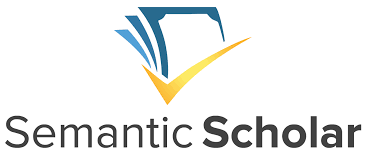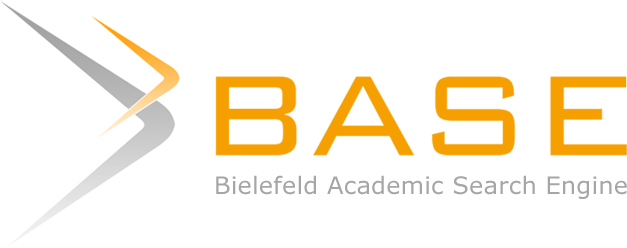Transcultural Collaboration: Epistemic Fluency and Identity
DOI:
https://doi.org/10.33324/dicere.v1i2.800Keywords:
Epistemic Fluency, Transcultural Collaboration, Intercultural Communication, Global MigrationAbstract
This article explores the development of epistemic skills through transcultural collaborations among students and professors from eight universities across continents. The study emphasizes the importance of dialogue in enhancing critical thinking and epistemic fluency in global contexts. By engaging students in discussions on global migration and epistemic justice, the research highlights the role of dialogic participation in fostering inclusivity and understanding diverse epistemologies. The projects "Epistemic (In)justice" and "Epistemologies of Inclusion across Continents and Cultures" revealed the potential of digital technology to facilitate meaningful intercultural exchanges while also underscoring the need for epistemic fluency to navigate complex global issues. The findings suggest that educational institutions must prioritize the cultivation of both hard and soft skills to prepare students for active, informed participation in a globalized world.
Downloads
References
Arendt, H. (1958). The human condition. University of Chicago Press.
Bauman, Z. (2000). Liquid modernity. Polity Press.
Carr, A., Abad, M., & Ullauri, N. (2019). Conversations about disasters: Listening to Ecuadorian children. Children's Geographies. https://doi.org/10.1080/14733285.2019.1630712 DOI: https://doi.org/10.1080/14733285.2019.1630712
Carr, A., Martinez-Sojos, M., & Ortega-Chasi, P. (2023a). Expectations of Ecuadorian higher education in a time of uncertainty: A comparison between the perceptions of students and teachers during the Covid-19 Pandemic (2020/21). In M. A. Carrigan (Ed.), Building the post-pandemic university: Imagining, contesting and materializing higher education futures. Edward Elgar Publishing. https://doi.org/10.4337/9781802204575.00017 DOI: https://doi.org/10.4337/9781802204575.00017
Carr, A., Bonilla, G., Alchazidu, A., Booth, W., Tineo, P., & Constanzo, P. (2023b). Epistemic (in)justice: Whose voices count? Listening to migrants and students. Journal of Comparative & International Higher Education, 15(5), 111–127. https://doi.org/10.32674/jcihe.v15i5.5811 DOI: https://doi.org/10.32674/jcihe.v15i5.5811
Carr, A., et al. (2024a). Epistemologies of inclusion across continents and cultures. Journal of Comparative & International Higher Education. (to be published online November 2024).
Carr, A., et al. (2024b). Collaborative partnerships: Epistemic fluency, transcultural competence and the sustainability of identity. In Critical internationalization of higher education: Evidence-based practices for ethical global engagement (to be published December 2024).
De Sousa Santos, B. (2014). Epistemologies of the South: Justice against epistemicide. Routledge.
Escobar, A. (2020). Política pluriversal: o real e o possível no pensamento crítico e as lutas latinoamericanas contemporâneas. Tabula Rasa, 36, 323–354. https://doi.org/10.1016/j.bbainv.2020.11.005 DOI: https://doi.org/10.25058/20112742.n36.13
European Union Education Area. (2024). Strategic framework - European education area. https://ec.europa.eu/education/education-in-the-eu/european-education-area_en
Harris, A. (2013). Distributed leadership: Friend or foe? Educational Management Administration & Leadership, 41(5), 545–554. https://doi.org/10.1177/1741143213497635 DOI: https://doi.org/10.1177/1741143213497635
Deleuze, G., & Guattari, F. (1988). A thousand plateaus. Athlone Press.
De Sousa Santos, B. (2014). Epistemologies of the South: Justice against epistemicide. Routledge.
Dower, N. (2008). Are we all global citizens? In A. A. Abdi & L. Shultz (Eds.), Educating for human rights and global citizenship (pp. 52). State University of New York Press.
Dewey, J. (1946). Dewey en Argentina (1916–1946): Tradición, intención y situación en la producción de una lectura selectiva. Encuentros sobre Educación, 10, 23–41.
Fricker, M. (2007). Epistemic injustice: Power and the ethics of knowing. Oxford University Press. DOI: https://doi.org/10.1093/acprof:oso/9780198237907.001.0001
Fricker, M. (2012). Group testimony? The making of a collective good informant. Philosophy and Phenomenological Research, 84(2), 249–276. https://www.jstor.org/stable/23210078 DOI: https://doi.org/10.1111/j.1933-1592.2011.00565.x
Gaya, P. C. (2021). Towards ever more extended epistemologies: Pluriversality and decolonisation of knowledges in participatory action research. Webpage: University of Bristol, U.K. School of Management - Business School Action Research and Critical Inquiry in Organisations. DOI: https://doi.org/10.4135/9781529769432.n13
Habermas, J. (2006). Political communication in media society: Does democracy still enjoy epistemic dimension? The impact of normative theory on empirical research. Communication Theory, 16(4), 411–426. https://doi.org/10.1111/j.1468-2885.2006.00280.x DOI: https://doi.org/10.1111/j.1468-2885.2006.00280.x
Harris, M., Carlson, B., & Poata-Smith, E. S. (2013). Indigenous identities and the politics of authenticity. In The politics of identity: Emerging indigeneity. UTS ePRESS. https://www.jstor.org/stable/j.ctv1w36pb6 DOI: https://doi.org/10.5130/978-0-9872369-2-0.a
Galeano, E. (1991). The book of embraces. Norton.
Gumperz, J. J. (1977). The sociolinguistic significance of conversational code-switching. RELC Journal, 8(2), 1–34. https://doi.org/10.1177/003368827700800201 DOI: https://doi.org/10.1177/003368827700800201
Kim, E. A. (2021). Global citizenship education through curriculum as relations. Prospects, 51, 129–141. https://doi.org/10.1007/s11125-021-09554-w DOI: https://doi.org/10.1007/s11125-021-09554-w
Lipari, L. (2010). Listening, thinking, being. Communication Theory, 20(3), 348–362. https://doi.org/10.1111/j.1468-2885.2010.01366.x DOI: https://doi.org/10.1111/j.1468-2885.2010.01366.x
Safronova, Y., & Michshenko, Y. (2023). Cross-cultural communication in the context of globalization: Language and culture nexus. In Proceedings of the 5th International Scientific and Practical Conference “Scientific Trends and Trends in the Context of Globalization” (pp. 211–221). Umeå, Kingdom of Sweden. https://doi.org/10.51582/interconf.19-20.02.2023.024 DOI: https://doi.org/10.51582/interconf.19-20.02.2023.024
Walker, M., Martinez-Vargas, C., & Mkwananzi, F. (2020). Participatory action research: Towards (non-ideal) epistemic justice in a university in South Africa. Journal of Global Ethics, 16(1), 77–94. https://doi.org/10.1080/17449626.2019.1661269 DOI: https://doi.org/10.1080/17449626.2019.1661269
Wimmer, F. M. (2007). Cultural centrisms and intercultural polylogues in philosophy. International Review of Information Ethics, 7, 1–8. https://informationethics.ca/index.php/irie/article/view/9/7 DOI: https://doi.org/10.29173/irie9
Downloads
Published
How to Cite
Issue
Section
License

This work is licensed under a Creative Commons Attribution-NonCommercial-ShareAlike 4.0 International License.
This article is published under the Copyright and Licensing terms of this journal.












